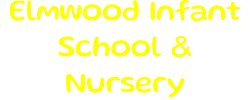
At Elmwood Infant school it is our aim that children will develop their knowledge, skills and understanding within mathematics and have the opportunity to use and apply mathematics in a variety of contexts. It is a subject that is essential to everyday life, providing a foundation for understanding the world and an ability to reason mathematically.
All children throughout the school have access to a broad and balanced mathematics curriculum at the appropriate depth. From the earliest stage, children are introduced to a variety of mathematical concepts in a practical way, which builds on their experiences and links mathematics with their environment and the physical world. Using this practical aspect, children begin the acquisition of skills and the understanding and application of processes. As children progress through school, each previous stage of knowledge and achievement is extended. For those pupils who grasp concepts rapidly, challenge should be presented through rich and sophisticated problems as opposed to acceleration through content.
Language plays an essential part in the formulation and expression of mathematical ideas. For children to develop their use of mathematical vocabulary, it is essential that they hear and speak good quality and variety language. Discussion is used by teachers to probe and remedy misconceptions and children are encouraged to explain their thinking clearly to themselves as well as to others.
Children in the Nursery and Reception classes are taught following the Early Years Foundation Stage Curriculum. Mathematics is split in to two key areas, ‘number’ and ‘shape space and measures’. Children will have access to a range of mathematical activities within the nursery and reception indoor and outdoor environments. New mathematical vocabulary and language will be modelled to the children in different areas within the classroom, and children will be encouraged to use this vocabulary independently in their play.
By the end of reception children will be able to count reliably with numbers from one to 20, place them in order and say which number is one more or one less than a given number. Using quantities and objects, they add and subtract two single-digit numbers and count on or back to find the answer. They solve problems, including doubling, halving and sharing.
To use everyday language to talk about size, weight, capacity, position, distance, time and money to compare quantities and objects and to solve problems. They recognise, create and describe patterns. They explore characteristics of everyday objects and shapes and use mathematical language to describe them.
Children in Year 1 and Year 2 are taught following the National Curriculum. The National Curriculum for Mathematics aims to ensure that all pupils:
- become fluent in the fundamentals of mathematics, including through varied and frequent practice with increasingly complex problems over time, so that pupils have conceptual understanding and the ability to recall and apply knowledge rapidly and accurately
- reason mathematically by following a line of enquiry, conjecturing relationships and generalisations, and developing an argument, justification or proof using mathematical language
- can solve problems by applying their mathematics to a variety of routine and non-routine problems with increasing sophistication, including breaking down problems into a series of simpler steps and persevering in seeking solutions.
The principal focus of mathematics teaching in key stage 1 is to ensure that pupils develop confidence and mental fluency with whole numbers, counting and place value. This should involve working with numerals, words and the four operations, including with practical resources.
At this stage, pupils should develop their ability to recognise, describe, draw, compare and sort different shapes and use the related vocabulary. Teaching should also involve using a range of measures to describe and compare different quantities such as length, mass, capacity/volume, time and money. By the end of year 2, pupils should know the number bonds to 20 and be precise in using and understanding place value. An emphasis on practice at this early stage will aid fluency. Pupils should read and spell mathematical vocabulary, at a level consistent with their increasing word reading and spelling knowledge at key stage 1.
Below are some links that you may find useful to support your child with their maths learning at home:
http://www.ictgames.com/resources.html
http://www.topmarks.co.uk/maths-games/5-7-years/counting
http://www.bbc.co.uk/bitesize/ks1/maths/
